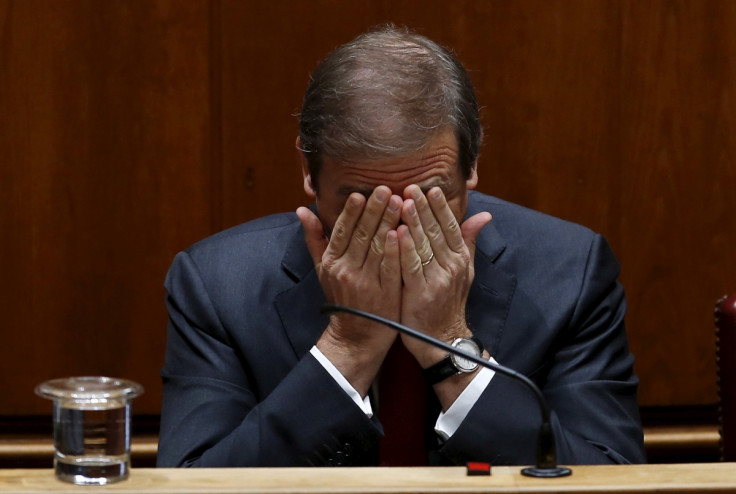Portugal: Leftist alliance ousts conservative government amid austerity measure backlash

Portugal's minority centre-right coalition government has fallen, less than a fortnight after being sworn in following a Parliament motion of no confidence approved by 123 out of 230 MPs, amid anger of its austerity measures.
Prime Minister Pedro Passos Coelho's conservative government was sworn in for a second term earlier in November after it won the most votes in the 4 October general election. However, it lost its absolute majority in parliament to a leftist alliance.
Antonio Costa, leader of the centre-left Socialists (PS), caught Europe's elite by surprise after forming a triple-coalition government with the Communist Party and the radical Left Bloc to get a majority in the 230-seat Parliament and vote down Coelho's austerity proposals on 10 November.
"If I am not prime minister as of Tuesday it will be because the Socialists did not let me continue... I'll be where I am needed, in government which is the natural place for the one who won the election, but if I am potentially not in government but in opposition, I will assume my responsibilities," Coelho was quoted as saying by Reuters.
Backlash against austerity
Commentators have described how the leftist alliance as ideologically who is aligned to Greece's anti-austerity Syriza party and Spain's Podemos, stirred a public backlash against austerity measures adopted following Portugal's €78bn (£58bn, $88bn) bailout in 2011.
The pro-austerity coalition came to power in June 2011, shortly after the country agreed to the terms of the bailout with the European Union and the International Monetary Fund amid an escalating sovereign debt crisis. It implemented sweeping spending cuts – the biggest in more than 50 years – to meet the terms of the bailout, which Portugal exited in 2014.
Following the bailout, Coelho's government curtailed unemployment rates by 5% and the economy has surged by 1.5% in the first half of 2015. This means the country recorded five quarters of uninterrupted growth in June for the first time since the 1990s.
But while data coming out of Portugal seems to show it is exiting a three-year deep recession, the improvement has been at the expense of the people, whose vote reflected a desire for change, according to Costa, who is poised to become prime minister.
As the news of the vote spread, AP reported that demonstrators at an anti-austerity protest organised by labour groups shouted "victory" outside Portugal's parliament.
© Copyright IBTimes 2025. All rights reserved.






















